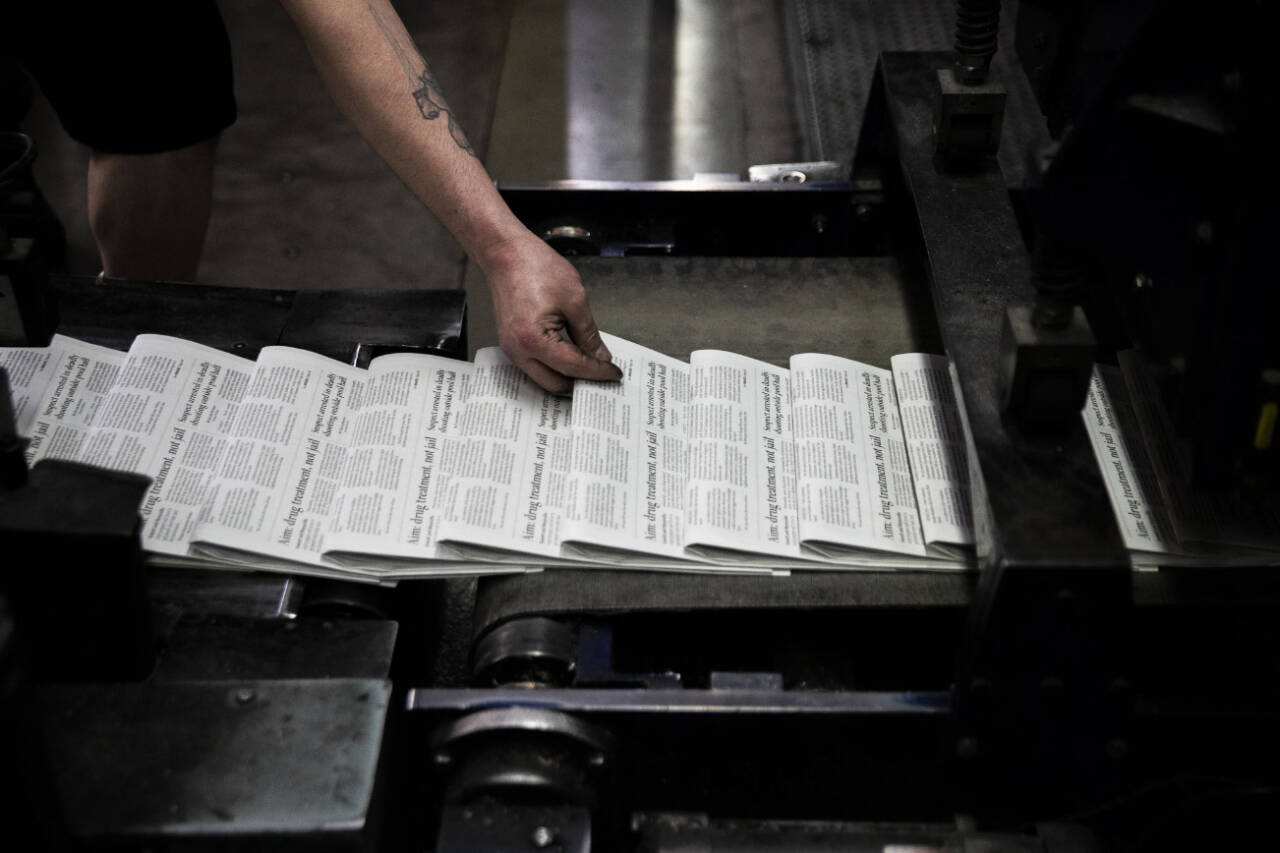By The Herald
Editorial Board
Readers expect to find obituaries in their newspapers, chronicling the lives of community members who contributed in ways great and small to their hometowns.
With increasing frequency — about twice a week across the nation — those obituaries are for the newspapers themselves.
Among the recently departed:
The Santa Barbara News-Press, a Pulitzer-Prize winning paper in California, after more than 150 years in print, ceased publication and filed for bankruptcy on July 21, a month after it dropped print publication and went to online-only coverage.
In the span of less than a month, Oregon lost three newspapers, as the 135-year-old Lebanon Express, the Medford Mail-Tribune and the Rogue Valley Messenger announced their closures in January.
And six community weeklies surrounding Akron, Ohio, ended print publication in March, with only limited online coverage available on the Akron Beacon Journal’s website.
Since 2005, America’s “news deserts” have grown in size as some 2,200 local newspapers across the U.S. have closed. And, while the covid pandemic was not the “extinction-level event” that many feared would occur, between late 2019 and May 2022, more than 360 newspapers ceased publication, noted a 2022 report on the state of local news by Northwestern University’s Medill School of Journalism.
All but 24 of those papers were weeklies, serving communities with populations from a few hundred to tens of thousands.
An estimated 70 million Americans now live in areas without local news coverage.
Those newspaper “deaths” translate into damaging losses for the communities they covered and the country as a whole.
“Invariably, the economically struggling, traditionally underserved communities that need local journalism the most are the very places where it is most difficult to sustain either print or digital news organizations,” the Medill report states.
And without the coverage those newspapers had provided, false and misleading information thrives, and the threat of corruption in government and business goes unreported and unchallenged, further feeding public cynicism and driving down participation in local government and turnout for elections.
It’s not that people don’t realize the need for news, but more Americans are turning to less trustworthy and responsible sources for that local information, to their great disadvantage. A 2020 report by the Pew Research Center found that Americans — about 1 in 5 — who primarily get their news from social media sources are less engaged and less knowledgeable.
Among Americans who primarily got their political news from social media, 57 percent had a low level of political knowledge, able to answer only five or fewer questions correctly of nine questions regarding U.S. news and politics. Those numbers were even higher for those who primarily got their national and political news from local television; 69 percent answered only five or fewer questions correctly.
At the time of the Medill report’s release in late June of 2022, there remained 6,380 surviving newspapers in the U.S.; 1,230 dailies and 5,150 weeklies. Those that remain work daily to continue their reporting and keep themselves relevant and of value to the communities they serve.
But just as there is a national interest in providing support to America’s businesses, there’s a national interest in aiding newspapers — in particular community daily and weekly newspapers — that essentially are predominately small- to medium-sized businesses.
Those businesses are the focus of legislation that was introduced last month in the U.S. House by Rep. Suzan DelBene, D-Wash., and Rep. Claudia Tenney, R-N.Y., that would support newspapers and other journalism outlets with targeted tax credits.
“In today’s digital world, access to trustworthy and reliable news is more important than ever,” DelBene said, in introducing the legislation. “Local journalists and newspapers play a critical role in increasing involvement in civic institutions, identifying government corruption and decreasing polarization.”
The Community News and Small Business Support Act would create two tax credit programs, each providing benefit to local newspapers and media outlets.
Small businesses could apply for a tax credit of up to $5,000 for the first year and $2,500 for the next four years to help pay for advertising in local newspapers with between one and 750 employees, websites with at least one reporter, or TV and radio stations licensed by the FCC.
Local newspapers could also apply for a payroll tax credit of up to $25,000 for each local journalist in the first year and $15,000 in the following four years of the program. The program would be open to newsrooms with at least one reporter and those not operated by a political action committee, political organization, a labor union or other ineligible groups.
The bill is similar to recent legislation in the Senate and pursued by Sen. Maria Cantwell, D-Wash., that was initially included in funding legislation and nearly passed in late 2021 before it was dropped from the final bill.
To improve its chances this time, the legislation has dropped a proposal that would have provided a credit for taxpayers that would have reimbursed them for subscriptions to newspapers and other news organizations. That proposal, DelBene has said, was too complicated to include this time.
As it did in 2021, the legislation does have bipartisan support, and is likely to be included as part of a larger bill, DelBene said.
It’s worth noting that the legislation is careful to keep its distance from the coverage that newspapers provide; there are no strings tied to the tax credits beyond its basic requirements. Newspapers are free to continue their coverage with no expectations for their reporting, other than to continue their work, DelBene said.
The legislation — by encouraging advertising that provides newspapers valuable financial support (as well as for the small businesses that advertise) and by reducing the payroll costs of newspapers — can help stem the news “desertification” of the U.S., sustain jobs in journalism, support local economies and ensure people in those communities remain informed and engaged.
The Daily Herald, published in Everett, Washington, is owned by Sound Publishing.

